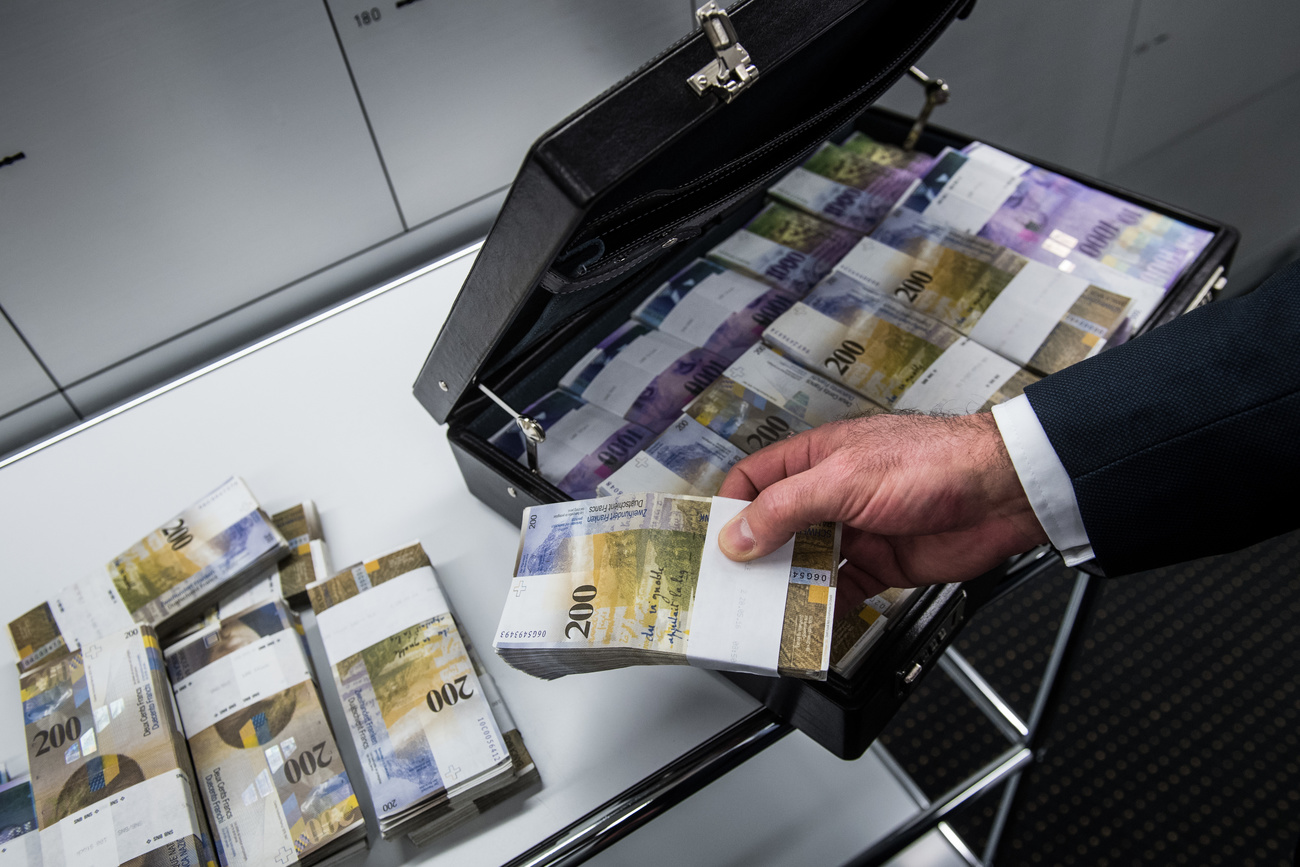
Parliament agrees modest tightening of anti-money laundering law

Swiss lawmakers have agreed to revise the money laundering law but have rejected new rules for lawyers, notaries and other consultants.
On Wednesday, parliamentarians ironed out their remaining differences in the revision of the Anti-Money Laundering Act. The right-wing majority prevailed with more modest reforms than many left-wing deputies had hoped for. Ultimately both sides agreed that some reforms were better than none.
Under the revision, financial intermediaries will now be required to verify the identity of customers, record which services have been provided to them, and clarify their background and purpose.
Associations that collect or distribute funds abroad for charitable purposes – which could be exposed to an increased risk of terrorist financing and money laundering – will also be required to be more transparent. They will have to sign up to the commercial register, appoint a representative in Switzerland and keep a list of their members for five years.
Another key revision is the reporting of suspicious activity. Parliament agreed that banks are obliged to inform the Money Laundering Reporting Office Switzerland (MLROS) when they have any “well-founded suspicion” of criminal funds.
The final revision does not however include major changes in areas that have drawn the ire of corruption watchdogs. One is whether lawyers should be covered by amended rules – a suggestion that came in the wake of the Panama Papers, which revealed the central role of a Panamanian law firm in international money laundering. In the final revision, lawyers and fiduciaries will not be subject to due diligence requirements in the Money Laundering Act.
The threshold for cash payments in the trade of precious metals and gemstones will also not be lowered from the current CHF100,000 ($107,672). The scope of application of the Anti-Money Laundering Act will also not be extended to those who manufacture smelted products on a commercial basis.
Although the final version is more in line with international practice, Switzerland is likely to continue to face pressure to tighten money laundering rules. Swiss banks continue to get caught up in corruption scandals that some corruption experts like Mark Pieth say is proof that the laws are flawed and that Switzerland remains a money-laundering paradise”.
The draft agreed on Wednesday will now go for a final vote before implementation.

In compliance with the JTI standards
More: SWI swissinfo.ch certified by the Journalism Trust Initiative

























You can find an overview of ongoing debates with our journalists here . Please join us!
If you want to start a conversation about a topic raised in this article or want to report factual errors, email us at english@swissinfo.ch.